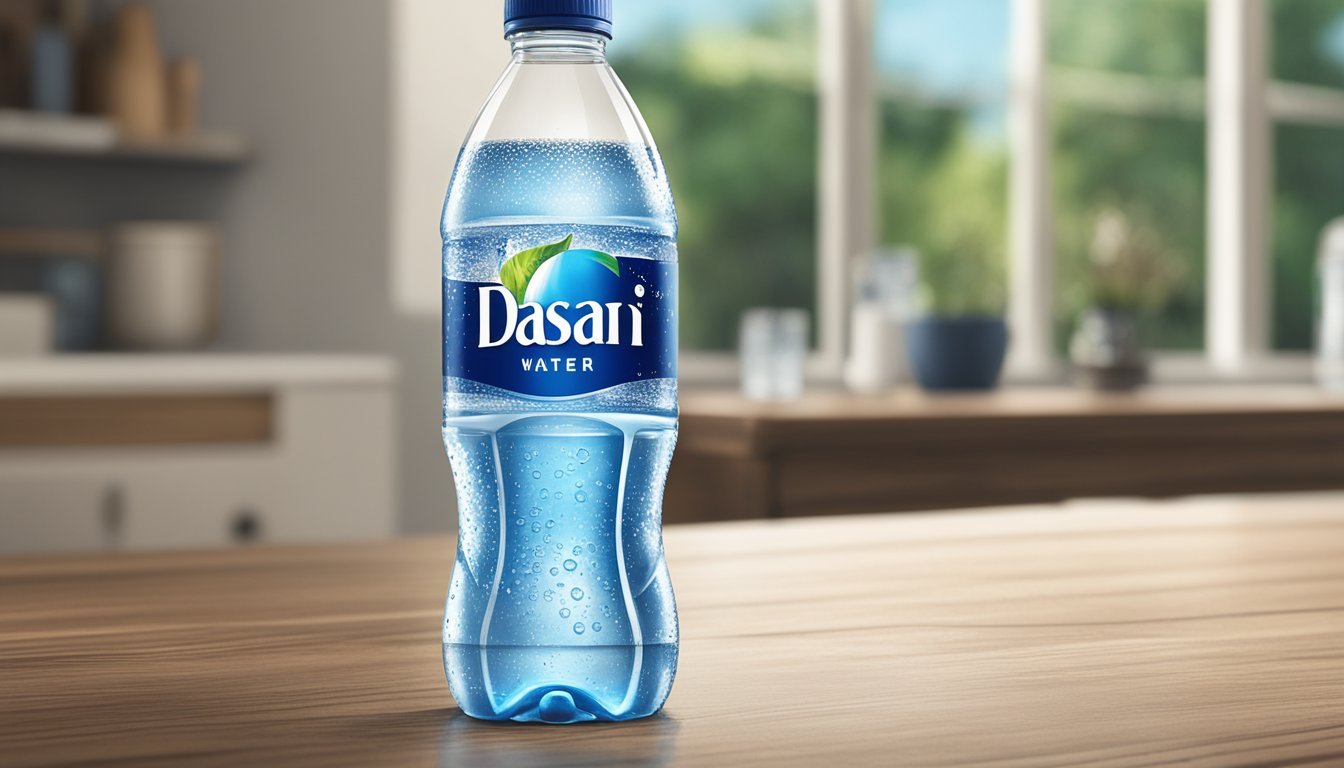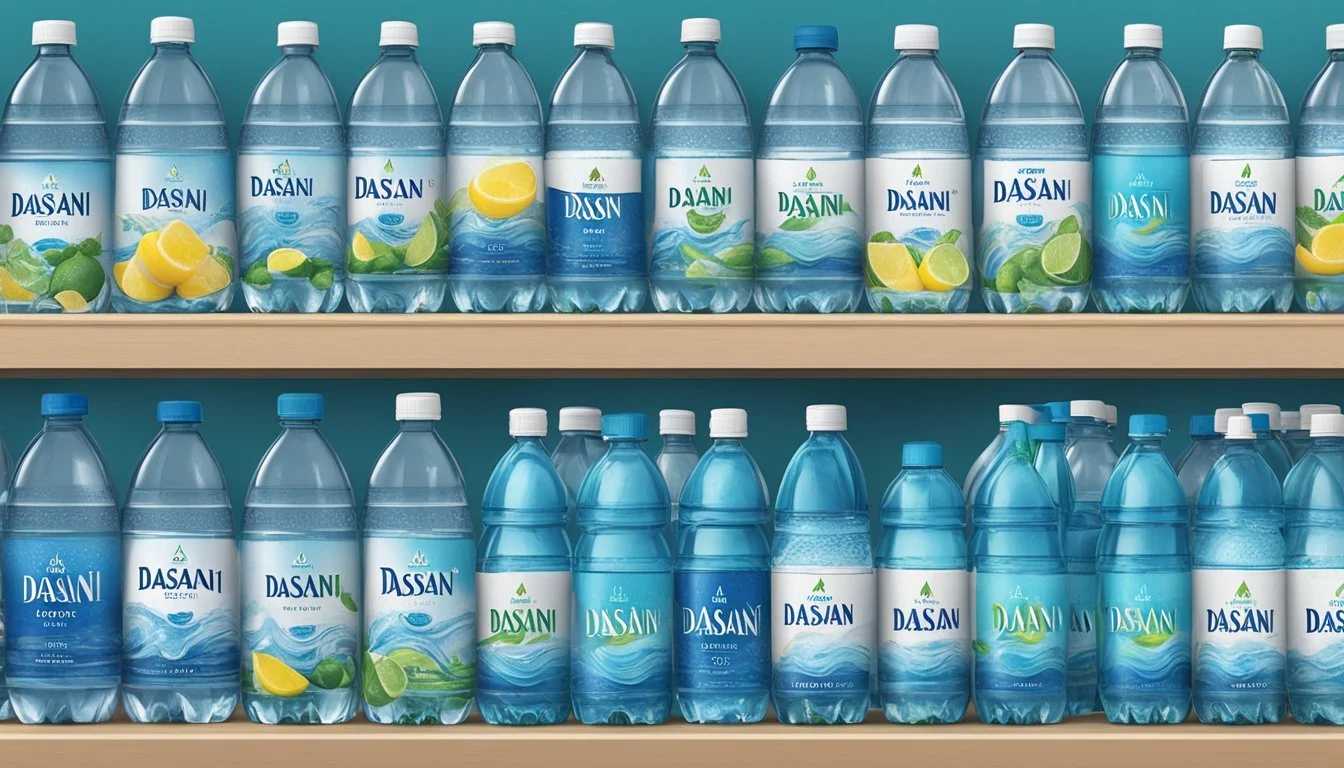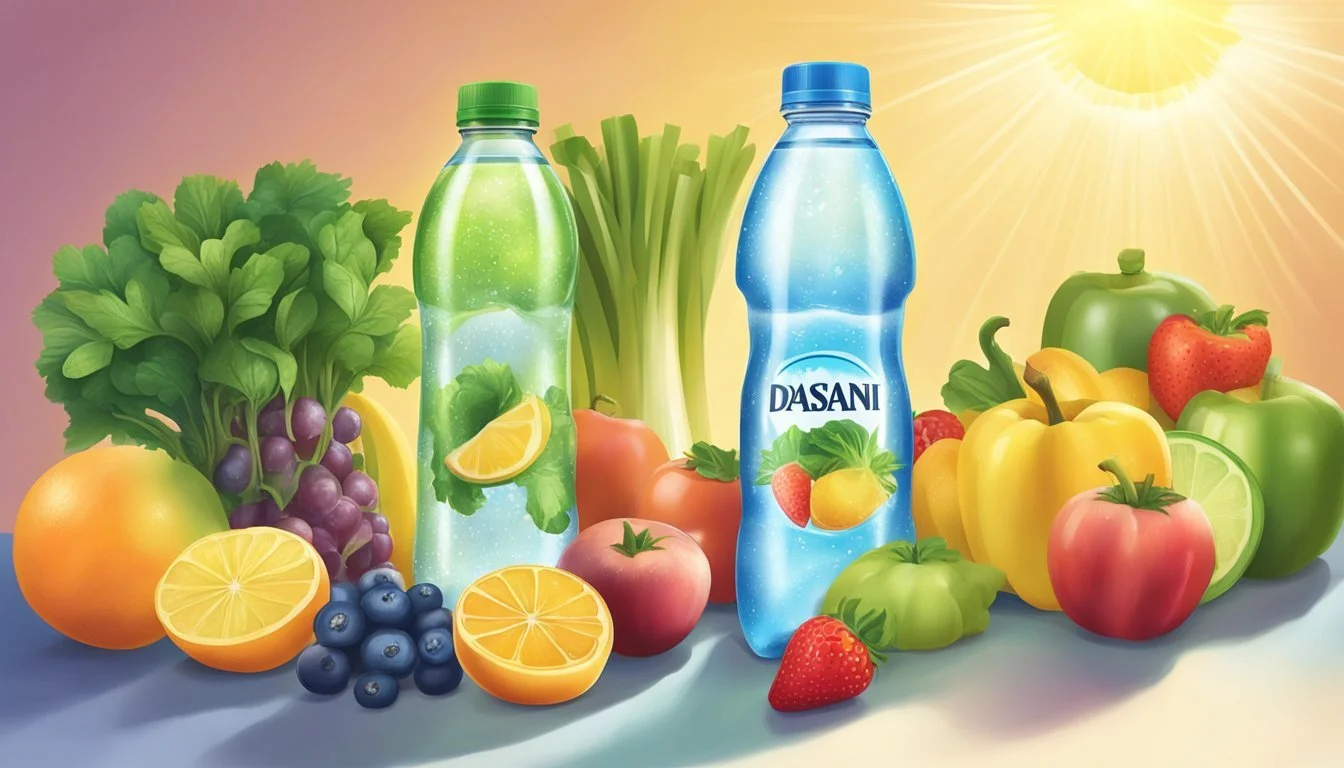Is Dasani the Best Bottled Water?
A Comprehensive Overview of America's Popular Brand
Dasani bottled water has become a familiar sight on store shelves since its introduction by the Coca-Cola Company in 1999. This purified water beverage is packaged in recyclable bottles and enhanced with minerals to provide a clean, fresh taste. Dasani uses filtered municipal water sources and meets FDA standards for quality and safety.
The brand offers various sizes and packaging options to suit different consumer needs. From single-serve bottles to larger multi-packs, Dasani provides hydration solutions for individuals and families alike. Its widespread availability in stores, vending machines, and other retail outlets has contributed to its popularity as a convenient beverage choice.
While Dasani has faced some controversies regarding its sourcing and production methods in certain markets, it remains a significant player in the bottled water industry. The brand continues to evolve, with efforts to improve sustainability through the use of recycled materials in its packaging.
Dasani Brand Overview
Dasani is a popular bottled water brand owned by The Coca-Cola Company. Launched in 1999, it quickly became a major player in the U.S. bottled water market.
Dasani's water undergoes a rigorous purification process using reverse osmosis filtration. The company adds a proprietary blend of minerals to enhance taste and provide a crisp, refreshing experience.
The brand is widely available across the United States in various bottle sizes, including 10.1 fl oz, 12 fl oz, 16 fl oz, 20 fl oz, 1 liter, and 1.5 liters. This range caters to different consumer needs and occasions.
Dasani has made efforts towards sustainability by using 100% recyclable bottles (excluding labels and caps). This aligns with growing environmental concerns among consumers.
Despite its widespread availability, Dasani has faced some criticism and challenges in the competitive bottled water market. It's not among the top 10 global water brands in sales.
The Coca-Cola Company continues to invest in and promote Dasani as a key part of its beverage portfolio. The brand remains a familiar sight in vending machines, grocery stores, and convenience outlets across the United States.
Dasani Water Sources and Purification Process
Dasani water undergoes a multi-step purification process to ensure quality and consistent taste. The brand sources its water from various locations, including municipal water systems and some protected groundwater sources.
Reverse Osmosis Filtration
Dasani employs reverse osmosis as a key step in its purification process. This advanced filtration method removes impurities and contaminants from the water. The process begins with activated carbon filtration to eliminate volatile organic compounds and chlorine.
Reverse osmosis then forces water through a semi-permeable membrane, effectively removing dissolved solids, bacteria, and other microscopic particles. This results in highly purified water that meets strict quality standards.
Enhanced with Minerals for a Fresh Taste
After the purification process, Dasani adds a proprietary blend of minerals to enhance the water's taste. This step is crucial in creating Dasani's signature flavor profile.
The added minerals typically include magnesium sulfate, potassium chloride, and salt. These contribute to a crisp, refreshing taste that remains consistent across different bottling locations.
The mineral enhancement process is carefully controlled to ensure a balanced flavor without overpowering the water's natural qualities. This results in a product that appeals to a wide range of consumers seeking a clean, fresh-tasting bottled water option.
Nutritional Information and Ingredients
Dasani bottled water contains a proprietary blend of minerals added to purified water. The ingredients are carefully selected to enhance taste and provide trace minerals.
Proprietary Blend of Minerals
Dasani's mineral blend includes magnesium sulfate, potassium chloride, and salt. These minerals are added in small amounts to give the water a crisp, clean taste. The nutritional content of Dasani water is minimal.
A typical 20 fl oz (591 mL) bottle of Dasani contains:
Calories: 0
Total Fat: 0g
Sodium: 0mg
Total Carbohydrates: 0g
Protein: 0g
The water also contains no vitamins or significant amounts of other minerals. Dasani is free from sugar, artificial sweeteners, and flavors.
Understanding Magnesium Sulfate and Potassium Chloride
Magnesium sulfate, also known as Epsom salt, is added to Dasani water for taste. It may provide trace amounts of magnesium, which is essential for various bodily functions.
Potassium chloride is another mineral salt used in Dasani's formulation. It can contribute small amounts of potassium to the water. Potassium is an electrolyte that helps maintain fluid balance in the body.
These mineral additives are present in very low concentrations. They primarily serve to enhance the water's taste rather than provide significant nutritional value.
Product Range and Packaging
Dasani offers a variety of bottled water sizes and packaging options to suit different consumer needs. The brand has also made strides in sustainability with its packaging materials and designs.
Available Sizes and Packs
Dasani bottled water comes in multiple sizes to accommodate various consumption preferences. The range includes 12 fl oz, 16 fl oz, and 20 fl oz bottles for individual use. Larger options like 1-liter and 1.5-liter bottles are available for sharing or extended hydration needs.
For bulk purchases, Dasani offers multi-packs. These include 8-packs and 24-packs of smaller bottles, providing convenience for households or events. The diverse sizing allows consumers to choose based on their lifestyle and hydration requirements.
Sustainability Efforts
Dasani has implemented several eco-friendly initiatives in its packaging. The brand introduced bottles made from 100% recycled plastic for its 20-oz, 1-liter, 1.5-liter, and 12-oz sizes. This change excludes caps and labels but significantly reduces the use of new plastic.
The company also developed PlantBottle Packaging, with bottles made from up to 30% plant-based materials. All Dasani bottles are 100% recyclable, encouraging consumers to participate in recycling efforts. These sustainability measures aim to reduce environmental impact while maintaining product quality and convenience.
Taste Profile and Consumer Reviews
Dasani bottled water has a distinctive taste profile that sets it apart from other brands. The addition of minerals during the purification process contributes to its crisp, clean flavor.
Many consumers describe Dasani's taste as refreshing with a slight mineral undertone. This characteristic is intentional, as the brand aims to provide a consistent flavor experience across all bottles.
Guest ratings for Dasani are mixed. Some appreciate the water's taste and find it satisfying for everyday hydration. Others, however, express dissatisfaction with the flavor, describing it as artificial or metallic.
Reviews on consumer platforms highlight both positive and negative experiences. Loyal customers praise Dasani for its reliability and familiar taste. Critics often point to environmental concerns and perceived quality issues.
Recent changes to Dasani's formula have attempted to address consumer feedback. The brand has made efforts to improve taste and quality, demonstrating responsiveness to customer preferences.
Taste preferences for bottled water are subjective, and Dasani's distinct profile may not appeal to everyone. Some consumers prefer water with a more neutral taste, while others appreciate Dasani's mineral-enhanced flavor.
Consumer reviews frequently mention the packaging. The bottle design and cap functionality have been topics of discussion, with some users reporting issues with flimsy bottles and difficult-to-open caps.
Pricing, Availability, and How to Purchase
Dasani bottled water is widely available at various retailers and can be purchased in different package sizes. Prices vary depending on the quantity and location, with options for both in-store pickup and home delivery.
Comparing Prices
Dasani water is sold in various package sizes, from individual bottles to multi-packs. A 24-pack of 16.9 fl oz bottles typically ranges from $6 to $8. Larger bottles, like the 20 fl oz size, are often priced around $1-$2 each when purchased individually.
Bulk purchases generally offer better value. For example, a 32-count package of 500 mL bottles may cost around $6-$7. Some retailers offer "Buy It Again" options for easy reordering of frequently purchased items.
Prices may fluctuate based on location and promotional offers. Comparing prices across different retailers can help find the best deals.
Pickup and Delivery Options
Many retailers offer convenient pickup and delivery options for Dasani water. Major chains like Target and Walmart provide in-store pickup services. Customers can order online and collect their purchases at a designated area in the store.
Home delivery is available through various e-commerce platforms and grocery delivery services. Some retailers offer same-day or next-day delivery options for added convenience.
Subscription services are becoming increasingly popular. These allow customers to schedule regular deliveries of Dasani water, often at discounted prices. This option ensures a consistent supply without the need for frequent reordering.
Hydration and Health Benefits
Dasani bottled water provides effective hydration for the body. Like other types of water, it helps maintain proper fluid balance and supports essential bodily functions.
The purification process Dasani undergoes removes impurities, ensuring it meets safety standards for drinking. This makes it a reliable choice for staying hydrated throughout the day.
Dasani water is enhanced with minerals for taste. These added minerals include:
Magnesium sulfate
Potassium chloride
Salt
While these minerals are present in small amounts, they may contribute to the overall mineral intake in one's diet. However, Dasani should not be relied upon as a significant source of minerals.
For most people, Dasani water is a safe and convenient option for meeting daily hydration needs. Its low mineral content makes it easily absorbable by the body.
Regular consumption of water, including Dasani, can support various aspects of health:
Temperature regulation
Nutrient transportation
Waste removal
Joint lubrication
Skin hydration
It's important to note that while Dasani can contribute to overall hydration, it's not inherently healthier than tap water or other bottled water brands. The key is to drink an adequate amount of water daily, regardless of the source.
Environmental Impact and Recycling Initiatives
DASANI has taken significant steps to reduce its environmental footprint. The brand introduced PlantBottle packaging in 2009, a fully recyclable bottle made partially from plant-based materials.
In 2019, DASANI announced plans to remove at least 1 billion virgin PET plastic bottles from its supply chain over five years. This initiative supports Coca-Cola's "World Without Waste" goal.
The company is expanding its use of recycled materials in packaging. DASANI aims to incorporate an average of 50% recycled content in its bottles and cans by 2030.
New packaging innovations include:
Aluminum cans and bottles
100% recyclable packaging
Package-free water dispensing units (DASANI PureFill)
DASANI is also implementing How2Recycle labels on all packages to educate consumers about proper recycling methods.
These efforts demonstrate DASANI's commitment to sustainability and reducing plastic waste. By utilizing recycled materials and developing innovative packaging solutions, the brand is working to minimize its environmental impact.
Additional Product Information
Dasani bottled water is available in various sizes to suit different needs. Common options include 10.1 fl oz, 12 fl oz, 16 fl oz, 20 fl oz, 1 liter, and 1.5 liter bottles.
The product packaging is designed with sustainability in mind. Dasani bottles are 100% recyclable, excluding the label and cap. This allows consumers to refill, reuse, and recycle the containers.
Dasani water undergoes a purification process that includes filtration to remove impurities. The company then adds a proprietary blend of minerals to enhance the taste.
Nutritional information for Dasani bottled water:
Calories: 0
Total Fat: 0g
Sodium: 0mg
Total Carbohydrate: 0g
Protein: 0g
The pH balance of Dasani water is carefully maintained to ensure consistent quality. This makes it a suitable choice for those looking to manage their hydration needs.
Dasani sources its water from municipal water systems or protected groundwater sources. The company follows strict quality control measures to meet regulatory standards for bottled water.
For consumers seeking alternatives, other bottled water brands and filtered tap water options are available in the market. Each may offer different mineral compositions or sourcing methods.
Consumer Recommendations and Alternatives
Dasani bottled water faces stiff competition in the market. Many consumers seek alternatives that offer better taste or environmental benefits.
JUST Water stands out as an eco-friendly option. Its packaging uses renewable materials like paper and sugarcane, reducing environmental impact.
For those prioritizing taste, Smartwater is positioned as a premium alternative. It typically costs more than Dasani but appeals to consumers looking for a distinct flavor profile.
Aquafina is often directly compared to Dasani. Both brands use rigorous filtration processes, with Aquafina touting its 7-step HydRO-7 system.
Here's a quick comparison of popular alternatives:
Brand Key Feature Price Point JUST Water Eco-friendly packaging Mid-range Smartwater Premium positioning Higher Aquafina 7-step filtration Similar to Dasani Nestlé Pure Life Widely available Affordable
Some consumers opt for reusable water bottles to reduce plastic waste. This approach redefines hydration habits while potentially saving money long-term.
Ultimately, personal preference in taste, price, and environmental impact guide consumer choices in bottled water. Trying different brands can help identify the best fit for individual needs.






